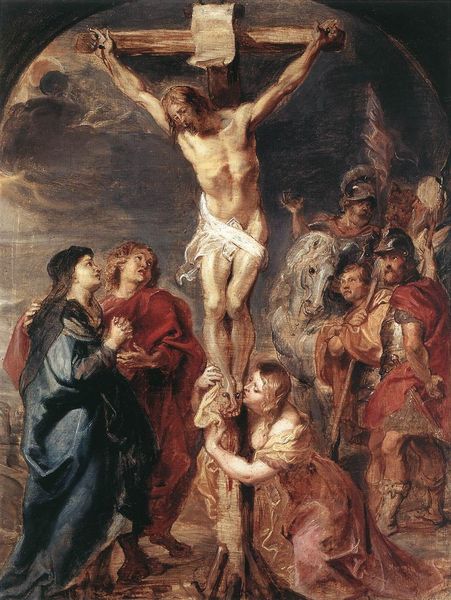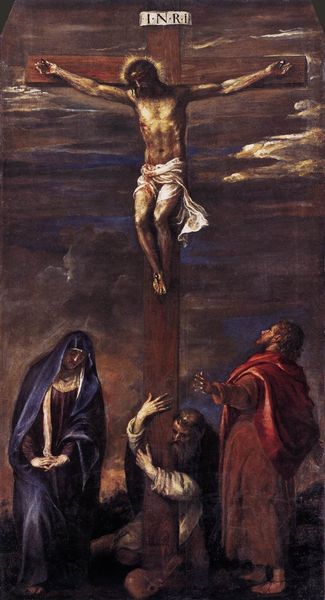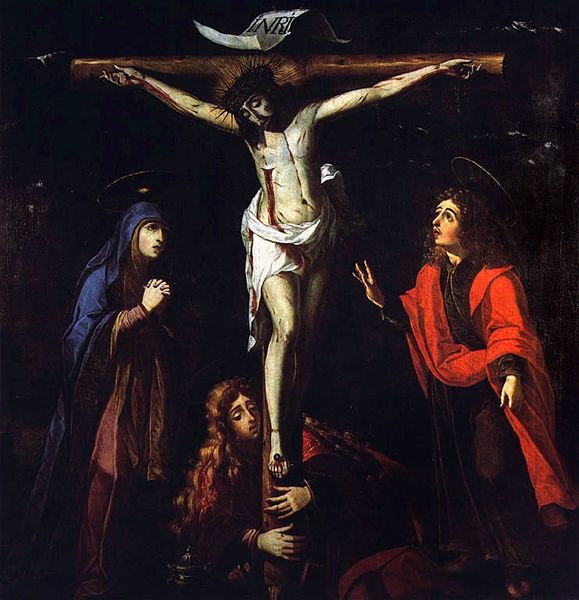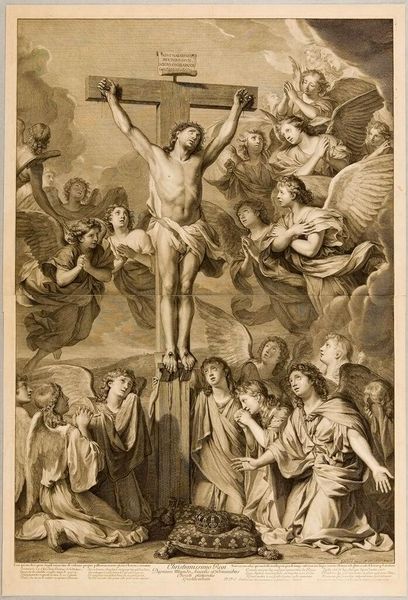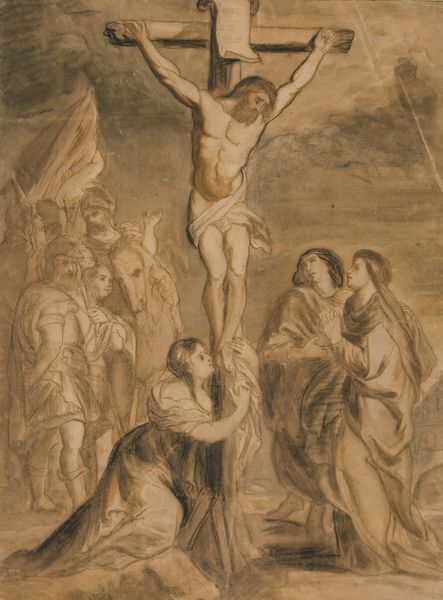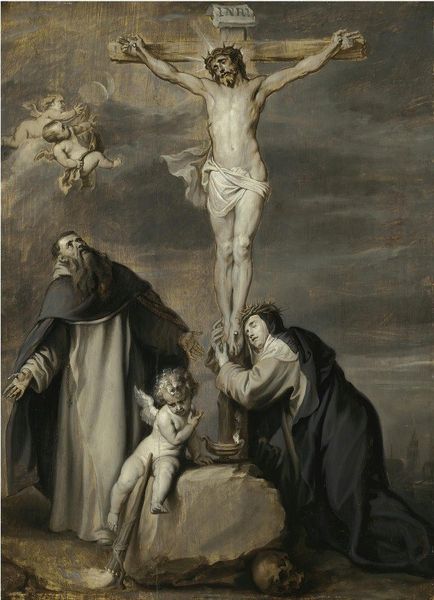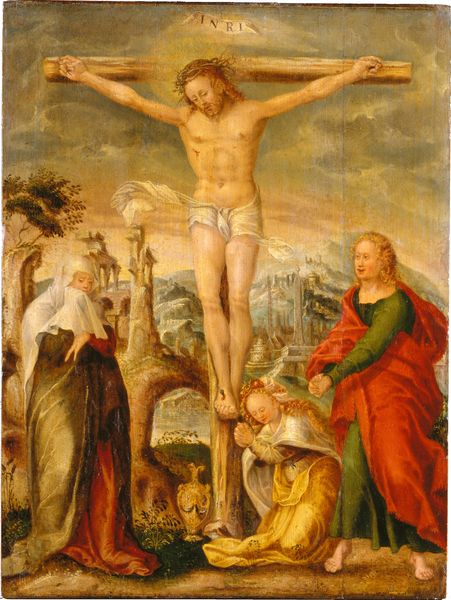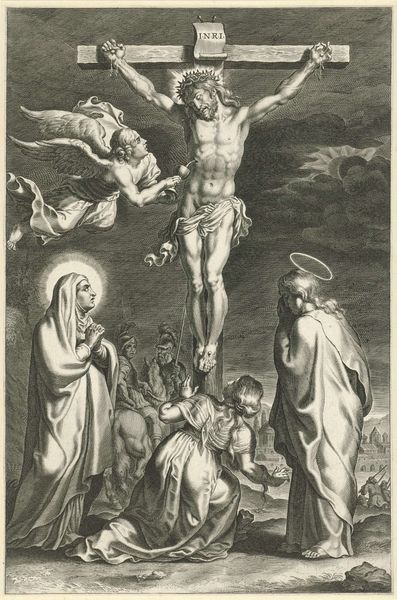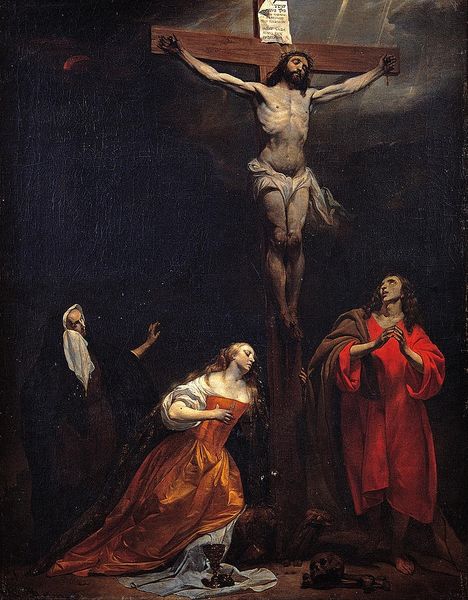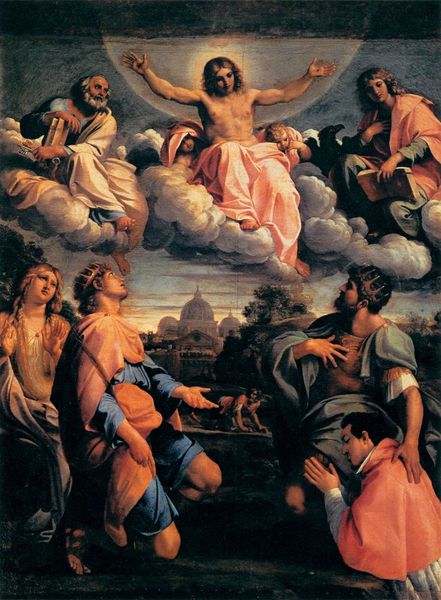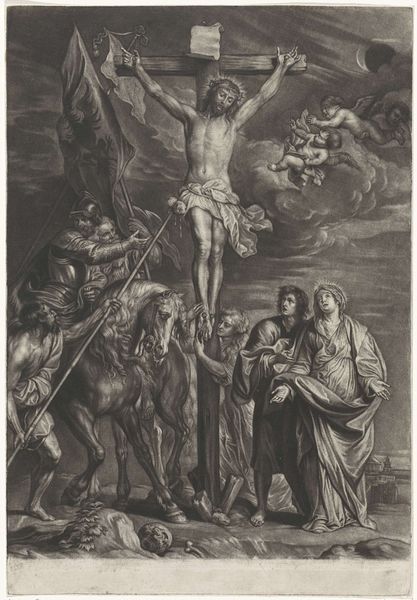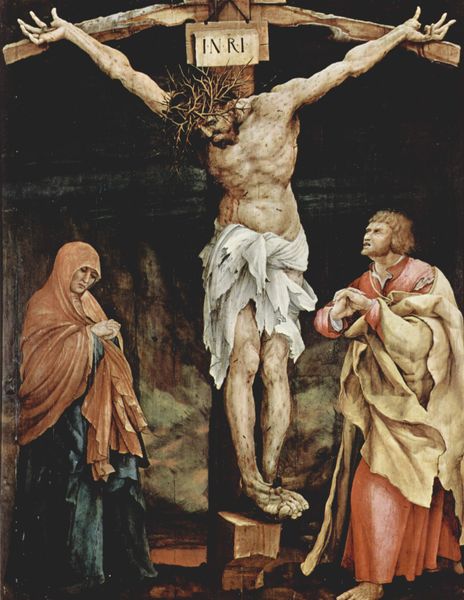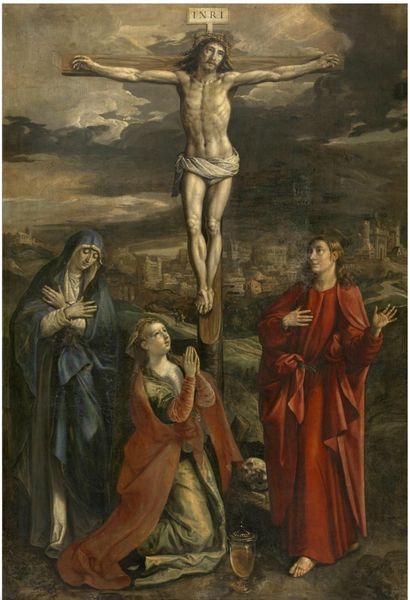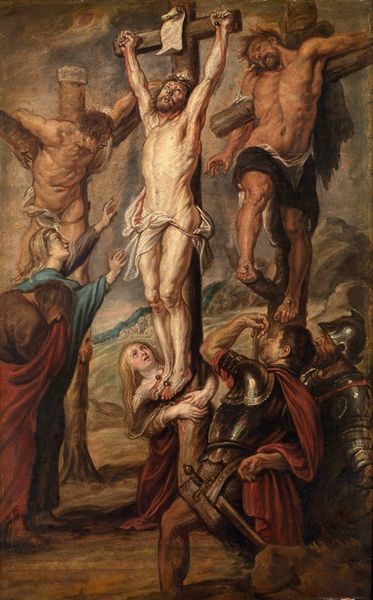
painting, oil-paint
#
baroque
#
painting
#
oil-paint
#
figuration
#
oil painting
#
christianity
#
crucifixion
#
history-painting
#
realism
#
christ
Copyright: Public domain
Anthony van Dyck painted Golgotha, rendering the crucifixion in the dramatic style of the Flemish Baroque. Van Dyck, like many artists of his era, found himself navigating the tense dynamics between religious conviction, political power, and artistic expression. Here, we see Christ's suffering body elevated, almost floating above the earthly realm, which is populated by those who mourn and those who execute. Van Dyck masterfully uses light and shadow to guide our eyes to Christ, yet it is the figures at the base of the cross who draw us into the emotional heart of the scene. Mary, cloaked in blue, is the epitome of maternal sorrow, while the soldiers on horseback represent the brutal force of empire. Their faces are obscured, suggesting a kind of bureaucratic indifference to the suffering they inflict. Golgotha reflects the traditional narratives of sacrifice and redemption, but in Van Dyck's hands, the scene becomes intensely human. It’s a powerful reminder of the intersections between faith, power, and the ever-present realities of human suffering.
Comments
No comments
Be the first to comment and join the conversation on the ultimate creative platform.
